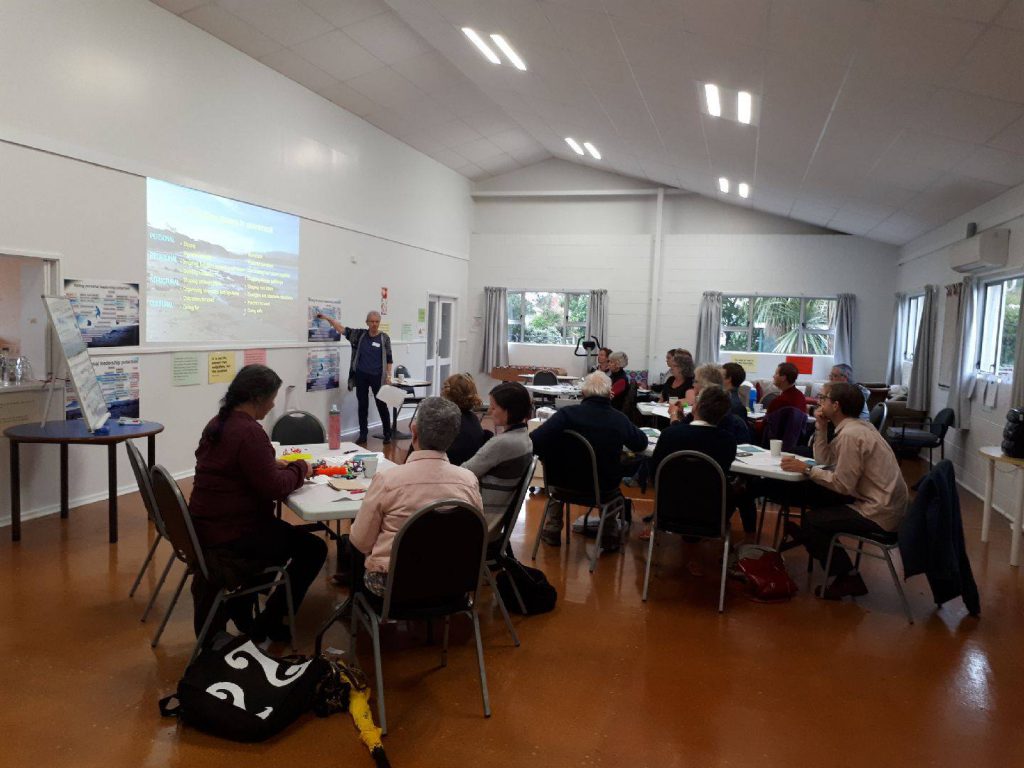




Our CLD Principles – Hei tautoko
Rather than a service model, community-led development (CLD) is a way of thinking that's underpinned by five principles. Inspiring Communities has crafted these principles from working with communities.
In Aotearoa, CLD is guided by Te Tiriti o Waitangi. Te Tiriti is a framework of belonging that acknowledges the Indigenous rights of tāngata whenua and affirms tino rangatiratanga and equity for all. They continue to evolve.
Implementing all CLD principles at once is sometimes simply not possible, especially when you’re first starting out. What matters is starting from where you, your organisation or community are at and then applying a CLD framework to guide how things develop.
1. Grow from shared local visions
Mā mua ka kite a muri, mā muri ka ora a mua
– those who lead give sight to those who follow; those who follow give life to those who lead
- Learn about tāngata whenua, their history, aspirations and relationships with Te Tiriti.
- Understand who was in this place, who is in this place and who will be in this place.
- Build plans with those who live, work, care, play, invest in or whakapapa to a place.
- Through right relationships, and if appropriate, invite mana whenua to co-create, critique or awhi the community vision.
- Tailor-make solutions that reflect local ambitions, goals and contexts.
- Grow a shared sense of optimism and collective ownership of the future.

2. Build from strengths
He kai kei aku ringa
– there is food at the end of my hands
- Everyone has a contribution to make.
- Value residents as ‘experts’ in their place.
- Proactively involve people who are frequently ignored.
- Recognise the strengths tāngata whenua bring and build respectful relationships.
- Recognise and consider the strengths of hapū and mana whenua and how, through right relations, they may support community-led change.
- Value community assets. Use what you’ve got to help get what you want.

3. Work with diverse people and sectors
Mā whero, mā pango, ka oti te mahi
– by red and by black the work will be completed
- Foster connections between groups who don’t usually work together.
- Support the aspirations of local whānau, hapū and iwi.
- Build respectful relationships with local whānau, hapū and iwi and consider ways to affirm and resource tino rangatiratanga.
- Ensure residents are actively involved in all aspects.
- Build relationships between neighbours.
- Encourage networking between community-led initiatives locally, regionally and nationally.

4. Grow collaborative local leadership
Ehara taku toa he toa takitahi, engari taku toa he toa takitini
– success comes from the strength of the collective and not of the lone individual
- Seek leadership from across the community – everyone is a potential leader.
- Value different cultural approaches to leadership including Te Ao Māori-led models.
- Support local people who are doing things and connect them to others to grow their effectiveness.
- Invest in developing skills and capacity of local leaders.
- Celebrate local leaders and community achievements.

5. Learn by doing
I orea te tuatara ka patu ki waho
– a problem is solved by continuing to find solutions
- Plan and work adaptively.
- Build in time for structured reflection to understand what’s working and what’s not.
- Use data and insights to measure impact. Document and share progress widely.
- Consider data sovereignty and decolonised methodologies. Remember to measure the quality of relationships and how you are working, not just what is being done.
- Embrace small steps that contribute to transformational change.
- Use local practice-informed evidence to support system changes locally and nationally.

